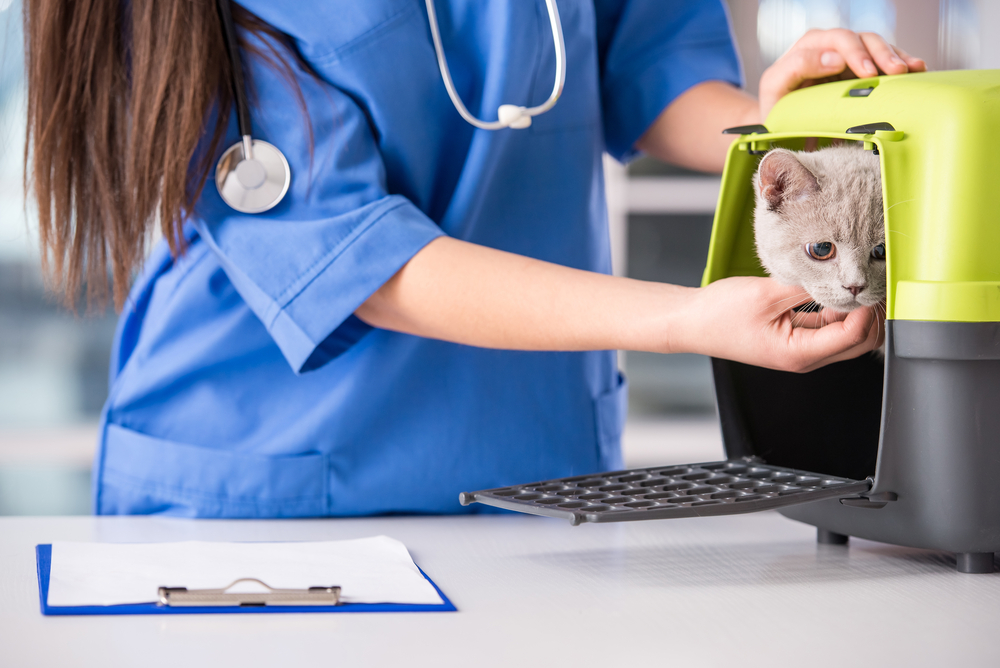When you get a reminder about your pet’s regular wellness appointment, do you call our office right away, to ensure you don’t forget to schedule Fluffy’s appointment? Or, do you plan to call eventually, only to forget until months later, or with the next reminder? How important is your pet’s regular wellness appointment? Does she really need to be examined every year, if she seems healthy? Let’s check out the answers to these important questions, and others.
What happens during my pet’s wellness exam?
Although our veterinarian may seem to quickly run her hands over your pet, and to listen to her heart while chatting with you, her highly trained eyes, ears, and hands are collecting important information as she performs a systematic physical examination. As she runs her hands over your pet, your veterinarian is feeling for any lumps, bumps, or abnormalities that warrant a closer look. As she palpates your pet’s abdomen, she is feeling for organ enlargement, or masses. She will look in your pet’s mouth to assess dental disease progression, and the possible need for a dental cleaning in the near future, and to check out your pet’s eyes, ears, and nose. With her stethoscope, she will listen to your pet’s heart and lungs, to ensure no abnormal sounds signify a possible problem.
Your pet’s physical exam provides critically important information, but we will also need additional tests to tell us more about your pet’s internal health, including:
- Fecal examination — A microscopic look at your pet’s poop will let us know if she has picked up any intestinal parasites, such as roundworms, whipworms, or coccidia, since her last appointment. Since intestinal parasites are prevalent in the outside environment, and can be a health risk to pets and people, parasite screening is an important part of your pet’s wellness exam.
- Heartworm testing — Heartworms are transmitted to pets by mosquitoes, and heartworm disease often causes no clinical signs until your pet has developed a large worm burden, with significant heart and lung damage. Annual screening is critical to ensure your pet doesn’t have an infection brewing, or to diagnose the parasite early, so your pet can be treated before long-term organ damage is done.
Regular examination and parasite screening is paramount to your pet’s health, because many diseases cause no obvious clinical signs until they are advanced, long-term damage is already done, and treatment is less effective. Your pet may seem perfectly healthy, but regular examinations to assess her internal health, and detect subtle disease signs, are important.
What vaccines should my pet receive?
Protecting your pet against disease through vaccination is another critical part of her regular wellness visit. The vaccines your pet receives are based on her lifestyle, and we will assess her risk factors to develop an appropriate protocol. Every pet should receive core vaccinations, either because exposure is likely, or the disease (e.g., rabies) is particularly severe. According to the American Animal Hospital Association (AAHA), core vaccines for all dogs include:
- Canine distemper
- Canine parvovirus
- Canine adenovirus, type 2
- Rabies
According to the American Association of Feline Practitioners (AAFP), core vaccines for all cats include:
- Feline viral rhinotracheitis (i.e., herpesvirus)
- Calicivirus
- Feline panleukopenia
- Rabies
Additional vaccines, such as Lyme disease, Bordetella, canine influenza, and feline leukemia, are recommended, based on your pet’s exposure risk.
What other preventive measures should I take to keep my pet healthy?
During your pet’s wellness appointment, we will discuss ongoing parasite prevention to not only keep annoying pests off your pet, but also to prevent the dangerous diseases they can transmit. Heartworm disease causes significant heart and lung damage, and death, if not treated. Fleas and ticks can transmit dangerous diseases to pets, and people, such as:
- Lyme disease
- Ehrlichiosis
- Anaplasmosis
- Rocky Mountain spotted fever
- Tapeworm infections
Your pet should receive year-round heartworm, flea, and tick prevention, and a Palisades Veterinary Hospital team member can help you decide which product combination best fits your pet’s needs. We can dispense a year’s worth of prevention products to your pet, once a negative heartworm test has confirmed that she is not harboring a silent infection.
How often should my pet have a wellness appointment?

Your pet should be examined yearly until she is 8, and her wellness visits should then increase to every six months. Pets age much more quickly than people, and your pet’s annual veterinary visit is similar to you seeing your doctor only once every five to seven years. Your pet’s health can change significantly in a year, so regular checkups are critical. As your pet ages, disease development is more likely, and more frequent wellness visits are important to detect diseases early, when treatment can better offer a cure, or slow progression. During your senior pet’s biannual wellness visits, we may recommend blood work to evaluate her organ function, and to diagnose conditions, such as kidney failure, liver disease, and diabetes, as early as possible.
Is your pet overdue for a wellness appointment, vaccine boosters, or parasite prevention? Contact us to schedule these essential healthcare services.








Leave A Comment